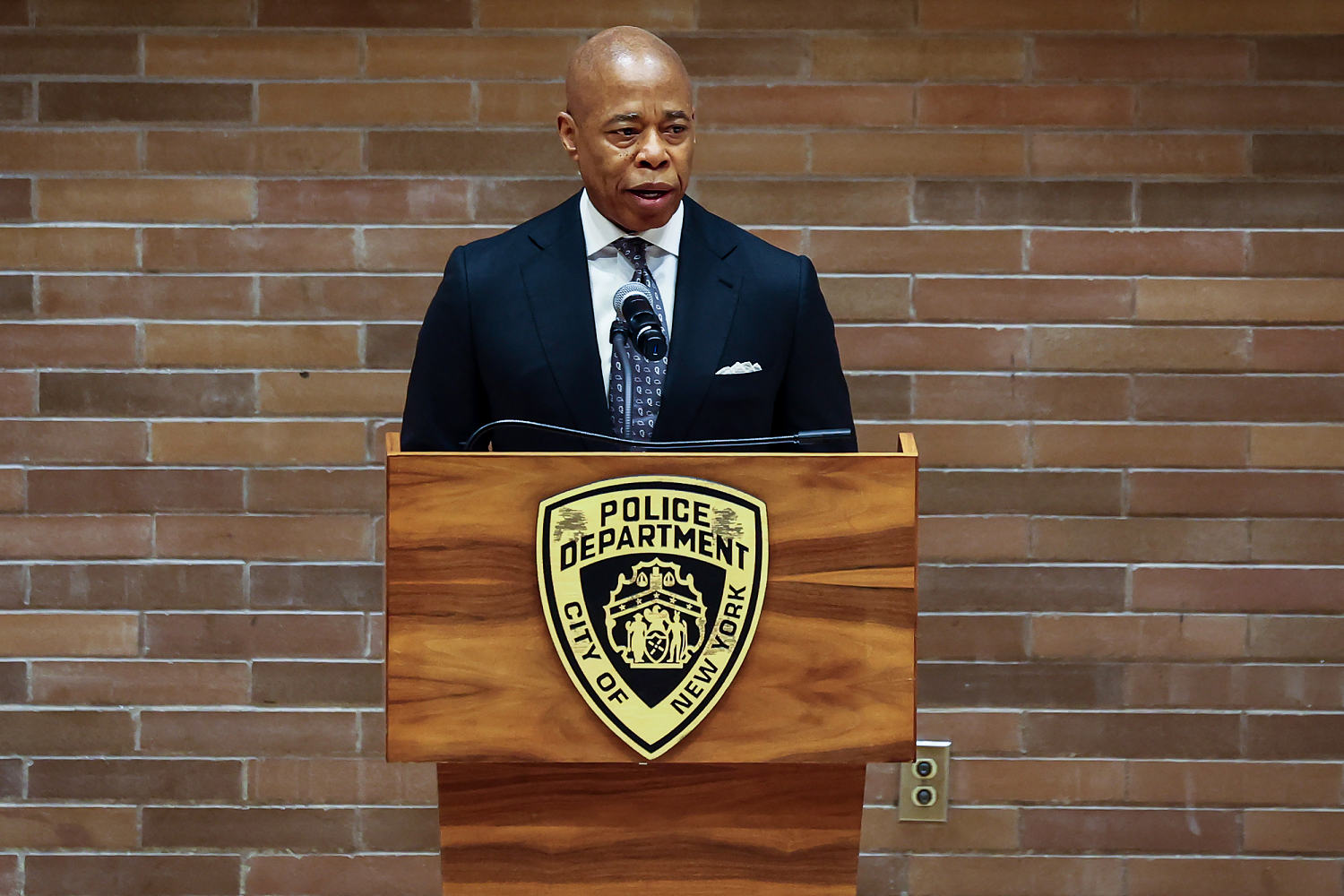
Welcome back, Deadline: Legal Newsletter readers. One of the biggest scandals of the second Trump administration closed a dark chapter this week, with the dismissal of New York Mayor Eric Adams’ corruption charges. I’ll explain why (perhaps counterintuitively) the dismissal was also a bright spot for the rule of law, which continues to be tested in a slew of cases — including when it comes to immigration, where Trump officials are risking contempt sanctions over deportations.
But first, the Adams affair. Recall that the DOJ, led in the effort by former Trump defense attorney Emil Bove, tried to get the Democratic mayor’s case dismissed without prejudice. That would have created political leverage over Adams to revive the case later if the feds were to become displeased with the mayor’s cooperation on immigration enforcement or anything else. The charade was too much for even Republican prosecutors working on the case, and they resigned rather than do Bove’s dirty work.
The judge refused, too. Joe Biden appointee Dale Ho vindicated those New York prosecutors and blasted DOJ brass when he agreed Wednesday to toss the case — crucially, he did so with prejudice. “Everything here smacks of a bargain,” Judge Ho wrote, adding that he “cannot and will not authorize such a result.”
So Adams lucked out, Bove struck out, and an independent judiciary narrowly escaped the episode.
Elsewhere in Donald Trump’s DOJ, another one of his personal lawyers — New Jersey’s newly minted interim U.S. attorney, Alina Habba — dressed up in a bulletproof vest for a gang arrest documented in a New York Post photoshoot. To be clear, this is not the sort of thing that prosecutors do. One reason is that a prosecutor who witnesses an arrest risks becoming a witness in the case, which can complicate matters.
And while Habba’s lack of qualifications raises concerns about her getting the job permanently, she has work to do if she wants to catch up with the outlandish behavior of Ed Martin, Trump’s top prosecutor pick for the nation’s capital. Former prosecutors are disturbed at the prospect of the former Jan. 6 defense lawyer getting the permanent nod for that office. Martin’s antics could probably fill their own newsletter, but for now, I’ll note the latest reporting on his strange tenure, which is that he compared the Jan. 6 prosecutions to the incarceration of Japanese Americans during World War II.
Speaking of Washington, D.C., and Trump DOJ issues, a judge there pressed the government on its apparent violation of his orders to halt certain deportation flights to El Salvador last month. At a Thursday hearing, D.C.’s chief federal trial judge, James Boasberg, had a hard time getting answers from DOJ lawyer Drew Ensign about the government’s conduct. Boasberg didn’t say when exactly he’d rule, but we’re awaiting his forthcoming order to see if officials might be held in contempt — and what sort of consequences they might face as a result.
Stepping back, the case stems from Trump’s invocation of the Alien Enemies Act to summarily deport immigrants his administration claims are Venezuelan gang members. Separate from the compliance issue pending before Boasberg, the administration asked the Supreme Court to halt the judge’s orders themselves. The high court application was one of several recent filings urging the justices to help Trump implement his agenda, in the face of lower court judges around the country blocking what they’ve determined to be various likely illegal aspects of that agenda.
The justices sided with Trump on Friday on one of those emergency motions, related to his administration’s cancellation of education grants. The court split 5-4, with Chief Justice John Roberts and the three Democratic appointees dissenting. One of the dissents called the majority’s decision to insert itself into the ongoing litigation at this early stage “equal parts unprincipled and unfortunate.”
In nonemergency litigation, the justices wrapped the term’s penultimate two-week argument session, holding hearings on religion and taxes, due process in terrorism lawsuits, and the GOP’s bid to defund Planned Parenthood in a case with Medicaid implications. The court also decided previously argued disputes, siding with the Food and Drug Administration in a case about flavored vapes and with a truck driver fired over a drug test.
Later this month, the justices will hear arguments in more religion-related cases and others before finishing the term’s final rulings. Those usually come by late June but sometimes can go into July. At any rate, lawsuits against Trump’s executive actions should keep the high court busy with emergency litigation.
And don’t forget about the state courts, where Elon Musk’s preferred candidate lost the Wisconsin top court race to Susan Crawford, maintaining the court’s 4-3 liberal majority. Notably, Wisconsin voters on Tuesday also enshrined voter ID requirements, which are typically put forward by conservatives but have bipartisan appeal among voters. And in North Carolina, a GOP-majority ruling from an intermediate appeals court could flip a Democratic state supreme court justice’s victory over a Republican. A Democratic appellate judge dissented from Friday’s panel ruling, writing that if the majority decision to toss out votes stands, “the impact will be to disenfranchise North Carolina voters even though they were eligible to vote on election day.”
Have any questions or comments for me? Please submit them on this form for a chance to be featured in the Deadline: Legal blog and newsletter.
